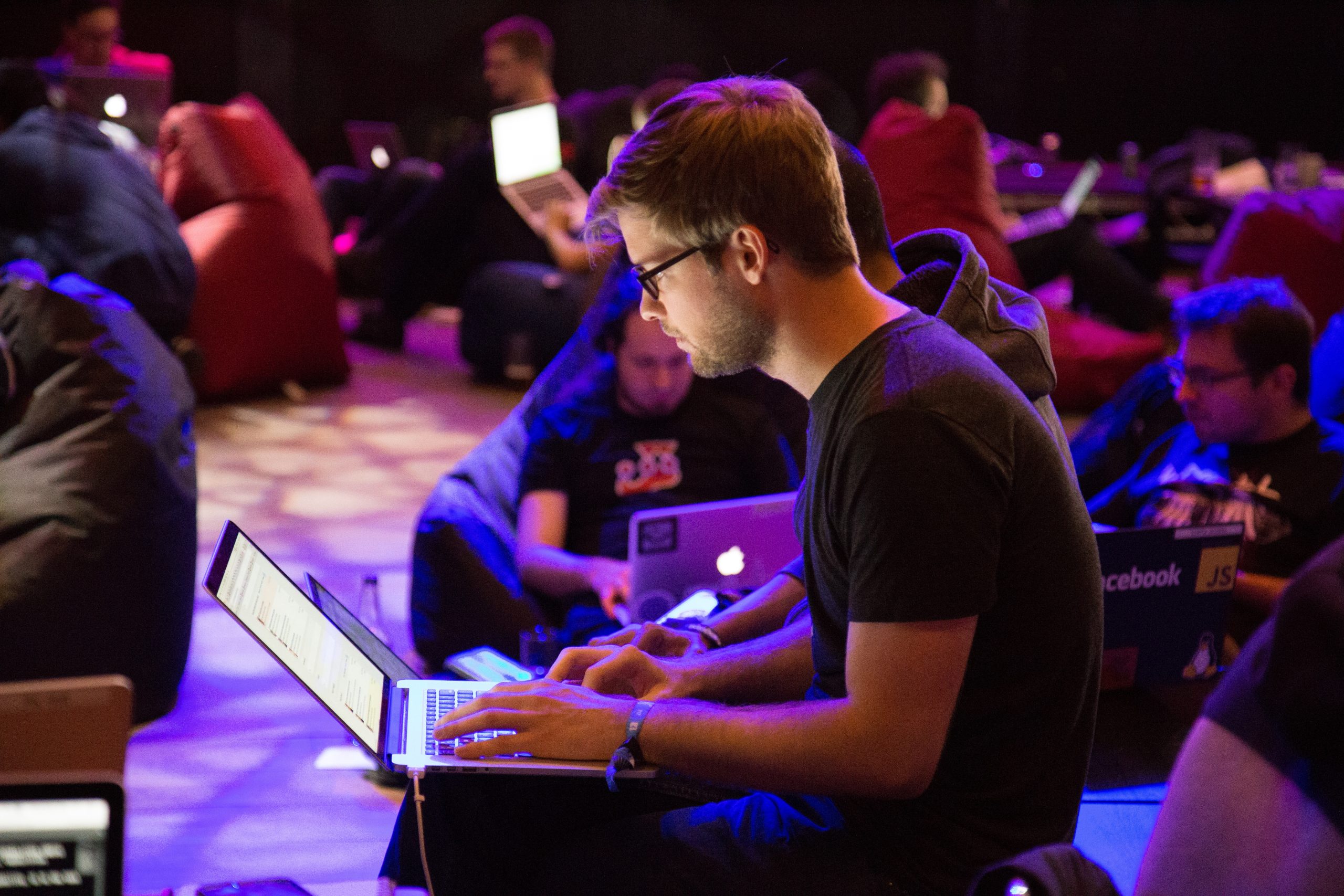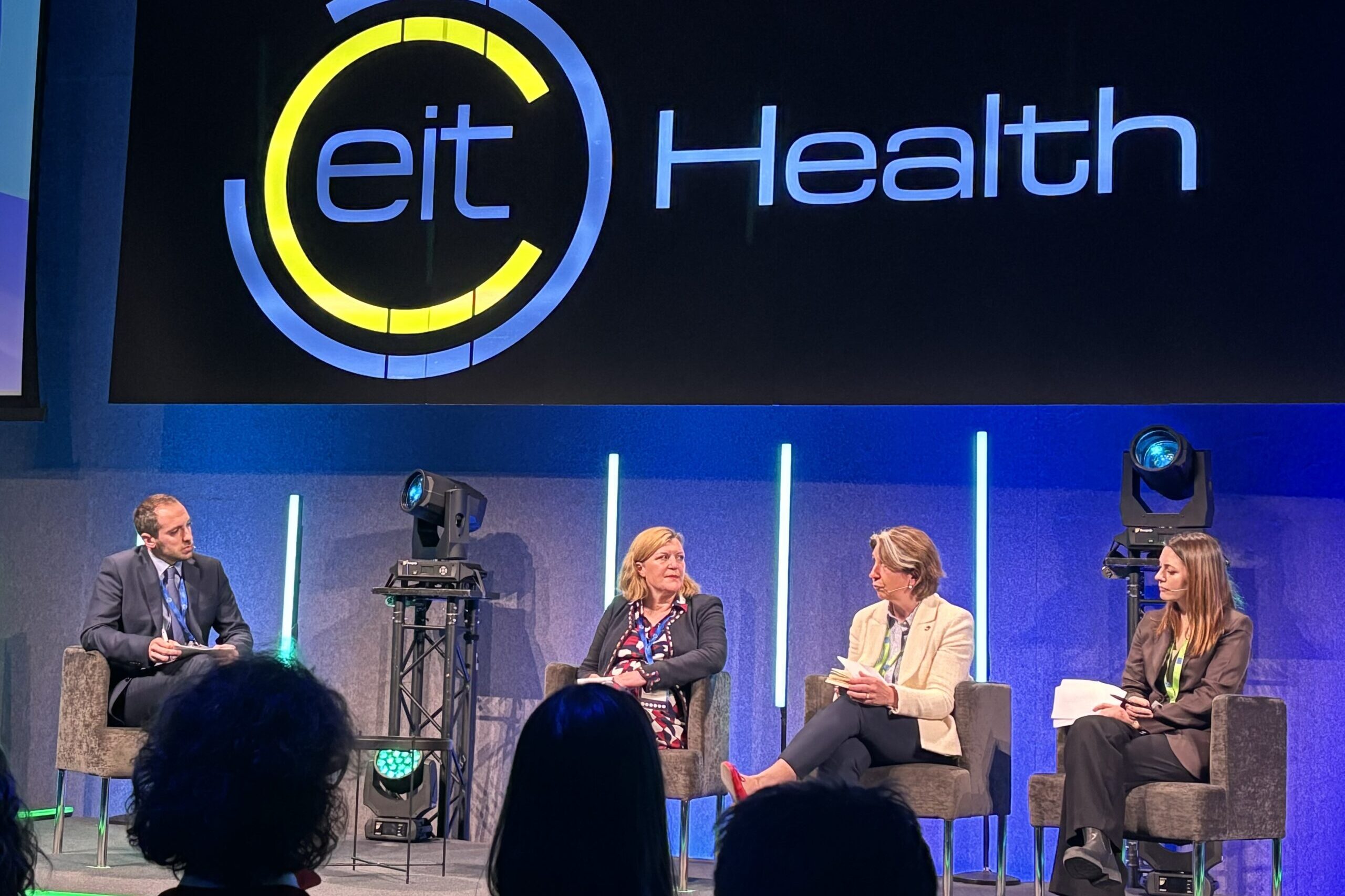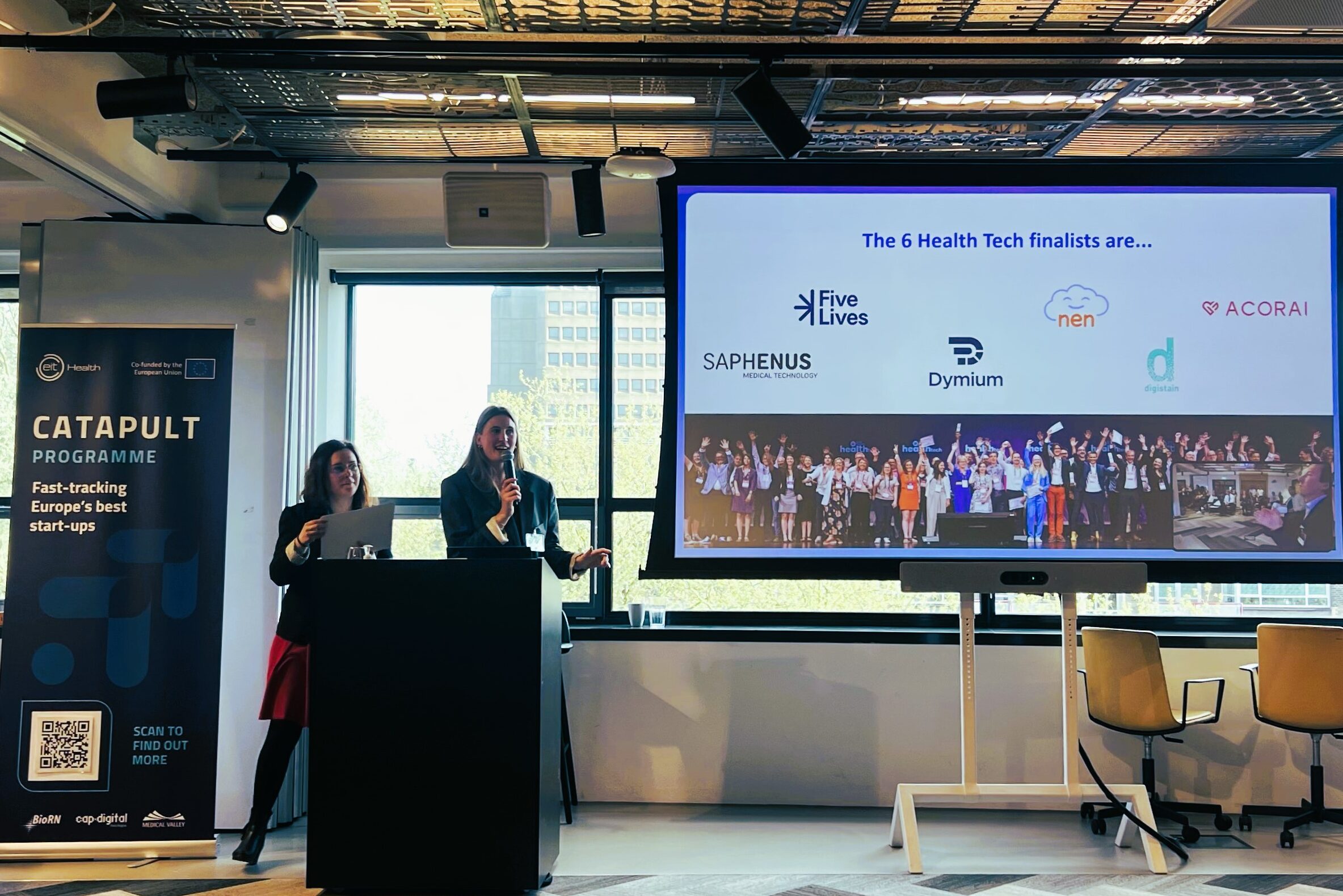25th June 2021
Where do healthcare investors put their money these days? What impact did COVID-19 have on fundraising? How many minutes do experts at big funds spend looking at a deck? These were some of the topics discussed in the latest episode of the ‘Rise to the challenge!’ series by Ines Matias, Business Creation Manager at EIT Health InnoStars, and Caroline Amblard-Sai, European Head of Operations for Angels Santé and EIT Health Investor Network.
“You have to convince investors that you are disruptive and that you are doing something that no one else is doing” – advised start-ups Caroline Amblard-Sai who described her job as a link between investors and start-ups. The expert shared some essential tips for start-ups based on her vast experience in the field and a strong international background.
“Go and get international key opinion leaders that can validate your value proposition. Right from the start, without costing too much, they will give an international scope to your project. It will probably be a great argument to investors that someone in the UK said your product is great” – she suggested adding that networking was also crucial. Going to events, even if just an attendee, can also lead to unexpected possibilities.
“81% of deals are made through referrals (…) you never know. It may not be necessarily money that they will give you, but they might open a door, give you a contact or can help you with partnerships” – she pointed out, adding that publishing as much as possible could also move a researcher’s career forward.
Amblard-Sai is a valued expert in the field of fundraising. She has seen what a complex and lengthy process it can be. The EIT Health Investor Network was set up to help start-ups navigate that process. It connects qualified companies seeking early-stage funding with a unique pan-European consortium of more than 80 healthcare investors across 17 countries. The Network – which started its operation in 2019 – connects selected start-ups to venture capitalists, corporate venture funds, angel networks and super angels who would like to invest in seed, Bridge or Series A deals, up to €10 million. In the past three years, there have been two InnoStars success stories: TeiaCare and PatchAI both completed the serious selection process and gained support from the Network.
“The start-ups come to us because they know we have a database. We have members that we have qualified. We know who invests in what and we can bring them to those investors. That will have a lot more weight than if they go by themselves, knock on door and wait for it to open. We have the key to the door. We go in and say: ‘Hey, take a look at this great project’. It may not be a good fit but at least they will look at it.” And that can be quite something. According to her experience, a big fund, that has above €1 000 000euros in management, will get around 1,000 companies a year and send them their deck. They spend less than four minutes looking at a deck. The chances of a start-up being looked at well and coming out of the pile is quite small. Also, many start-ups contact wrong people, which is, according to Amblard-Sai, a waste of time and reputation.
New trends in investments
Amblard-Sai also talked about the latest trends in investments. Digital health is an up-and-coming sector. Remote monitoring, home care solutions, following the patients and predictive diagnostics are all quite popular, but what investors are mainly looking for are deep tech companies and AI. In biotech, the “big thing” now is advanced therapy – especially in oncology, ageing, etc., and anything linked to mental health.
Covid-19, of course, had an impact both on start-ups and investors. Both were cautious last spring but by mid-summer they realised that it was about time to go back to normal business. But since the pandemic hit the globe, business has predominantly been done via video calls. This sector is no exception. “Even those who wouldn’t do it before, made a deal online. It is interesting, because doing a deal, especially with early-stage start-ups, is a lot about trust and being convinced by the team. They learned how to function in a different way.”
You can watch the previous episode of “Rise to the challenge!” about the power of artificial intelligence (AI) and its future application in healthcare here.
“Rise to the challenge!” can be followed on the EIT Health InnoStars Facebook account and on LinkedIn.
Join the heartbeat of healthtech in Munich this June

Discover the third annual health.tech conference.
Health experts make recommendations on EHDS implementation

Discover our new Think Tank report.
